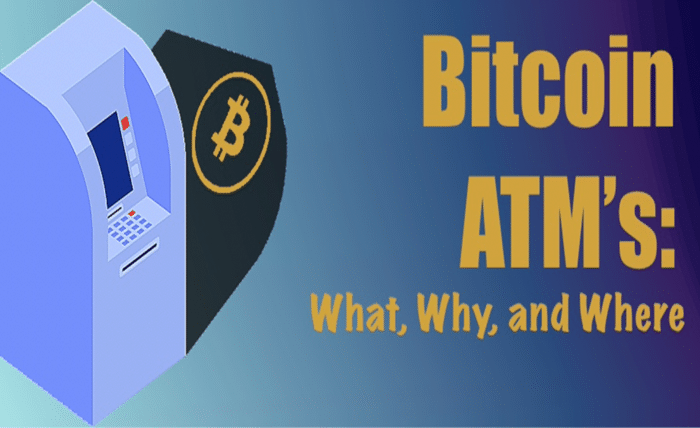The Security Benefits Of Using Bitcoin ATMs: Keeping Your Investments Safe

Cybercrime targeting cryptocurrency is a significant concern for some would-be investors and traders, and rightfully so. More crypto exchanges face sophisticated hacking attempts, while individuals can fall victim to malware, phishing scams, and theft of private keys.
While no system is completely hack-proof, a Bitcoin ATM offers security advantages, enabling users to transact more securely than traditional exchange accounts. Their offline infrastructure is less susceptible to cybercrime while still providing investment access.
Hardware Wallet Integration
A properly installed Bitcoin ATM is a physical hardware wallet with a convenient cash interface. Once you deposit or withdraw funds, the transactions immediately move on and off hardware storage with no online records. This setup prevents hackers from targeting stored transaction histories or individual account balances as ATMs empty after each trade.
Offline Operation
As standalone machines without external connectivity, Bitcoin ATMs are secure from the public internet and private networks that routinely scan for vulnerable systems. They have no open ports, services, or constant net access, which provides a direct bridge to stored coins. ATMs complete transactions while disconnected from too many centralized points of failure.
Limited Data Exposure
Compliance requires exchanges to retain detailed customer identification records that become attractive targets. However, a Bitcoin ATM only needs such for authorization and verification without storing sensitive, personally identifiable information in databases at greater risk.
Funds are constantly transferred on/off, preventing deposit stockpiling. Moreover, Bitcoin ATMs integrate military-grade hardware security modules to generate, store, and manage private keys in an encrypted, secure environment.
Physical Protection
While physical theft remains possible, Bitcoin ATMs offer superior access control compared to networked computers, as they use monitored public locations to deter improper access. By design, they are less susceptible to remote attacks spreading malware or exploiting software vulnerabilities requiring proximity.
Hardware security modules add further protection that is unavailable to online wallets. A well-maintained Bitcoin ATM has physical security mechanisms like locked enclosures, security cameras, and location within businesses.
Regulatory Oversight
Most ATM operators adhere to strict industry standards under regulatory and law enforcement supervision unavailable to unregulated online-only entities. Onsite surveillance, insurance requirements, and auditing provide recourse far from purely peer-to-peer transactions.
Operators invest more heavily in security best practices and incident response than individual custodians. Moreover, in many jurisdictions, ATM operators must obtain a money transmitter license to comply with anti-money laundering and know-your-customer regulations.
Self-Custody Option
Since Bitcoin ATMs complete secure transactions, users always retain full control of private keys without third-party dependence. Funds travel directly between connected hardware wallets, eliminating single points of access or stored balances.
By not relying on third parties to store private keys, you can retain sole ownership and control over their Bitcoin. This also prevents situations where an exchange may block or lose access to funds.
A Bitcoin ATM Will Protect Your Investment
While no system eliminates all risks, pairing inherent hardware protections with limited attack surfaces and regulatory compliance, a Bitcoin ATM offers users security. It has changed how you buy and sell Bitcoins by making them more secure. Using a Bitcoin ATM is undoubtedly one of the safest ways to protect your crypto.




